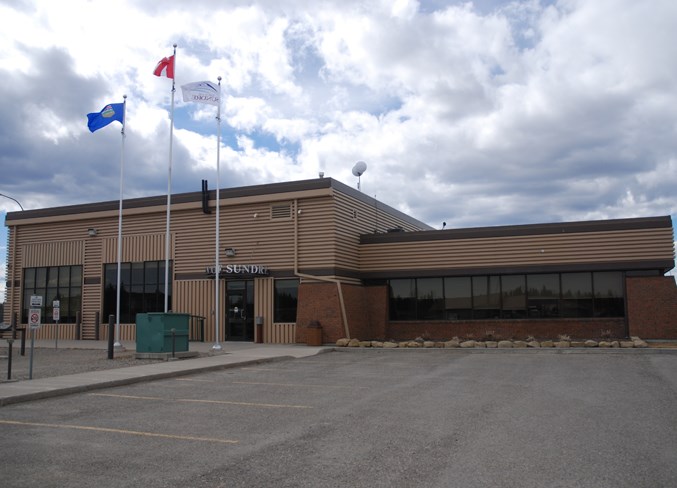Following months of planning, discussions and workshops, council recently adopted the municipality’s first-ever, four-year operational and 10-year capital budget.
However, the decision was not carried unanimously during the March 18 meeting, when two councillors shared concerns with their colleagues.
“There still is the unnerving fact of the unknowns that are being faced by the Town of Sundre over the next three years,” said Coun. Richard Warnock.
“I know that we did work on this, we did have a lot of consensus and we are wanting to proceed. I’m just not sure if we have the right path going forward in how we’re going to do these numbers in 2020 and 2021.”
Upon reflecting on his position, Warnock, who spoke against the recommended motion, said he strongly favours the 2019 numbers that council worked out with administration, which he called “a good operating budget.” But he wondered whether subsequent years’ figures should be further reviewed.
Coun. Rob Wolfe spoke in favour of the motion, pointing out that even with the adoption of the four-year operational budget, council will still have the opportunity to revisit and update numbers during spring and fall workshops.
Coun. Paul Isaac, who also spoke in favour of the motion, said he agreed with both perspectives. He said council will always struggle to grapple with multi-year budgets due to the uncertain nature of planning so far in advance.
Isaac said any corporate, business or municipal entity that can provide their managers with a little bit more strength to do long-term planning will benefit. He added that every spring and fall will provide a new opportunity to update the document as needed.
Coun. Cheri Funke, speaking in favour of the motion, said council has done the legwork.
“It is the cost estimates. It’s not how much it’s going to increase, or not increase, the taxes,” she said.
“And that’s where we’ve struggled in the past. When you pass a budget, instantly you think that it gets passed on to the public, and that’s not how it works. They’re two separate things,” she said, also reiterating that there will always be a chance to review the budget on an ongoing basis.
“Our administration need to do their jobs. We are legislated to pass a budget and I support this budget…I think derailing it now would put a lot more suffering in the administration than we want.”
Coun. Todd Dalke, who spoke against the motion, said as it's the first time council has approved such a budget, the decision was a difficult one but that subsequent years would be easier.
“The public needs to understand there is a lot more changes to come through it,” said Dalke.
Mayor Terry Leslie, speaking in favour of the motion, said council and the public had been provided ample opportunity to offer input in the budget process.
“It’s probably better than we’ve seen in years gone by,” said Leslie, adding council seemed largely confident about projected numbers for 2019.
But while there is uncertainty surrounding those following years, the mayor said the newly implemented budget cycle will leave plenty of room to further discuss issues that come forward.
Although there are substantial cost increases forecast in the coming years that he wants to talk about some more, the mayor said he is comforted by the amount of reserves the municipality has in place.
Chris Albert, director of corporate services, had in the lead-up to council’s discussion said the document presented reflected changes that had recently been discussed during a workshop.
“I would like to reiterate for council, the public, as well as the media, that this is not a mill rate or a tax rate increase,” said Albert.
“That’s a separate decision, probably in about a month. This is just budgeting for the costs,” he said.
Funke’s motion for council to adopt the document with total expenditures of $8.7 million, $8.9 million, $9.4 million, and $9.6 million along with total operational revenues of $5.1 million, $5.1 million, $5.2 million and almost $5.3 million in 2019, 2020, 2021 and 2022 respectively; with the remaining roughly $3.6 million, almost $3.8 million, $4.2 million, and $4.3 million in the same years respectively to be funded through taxation, Fortis Franchise Fee, Municipal Sustainability Initiative grant funding and restricted surplus accounts where identified, carried with Dalke and Warnock opposed.



